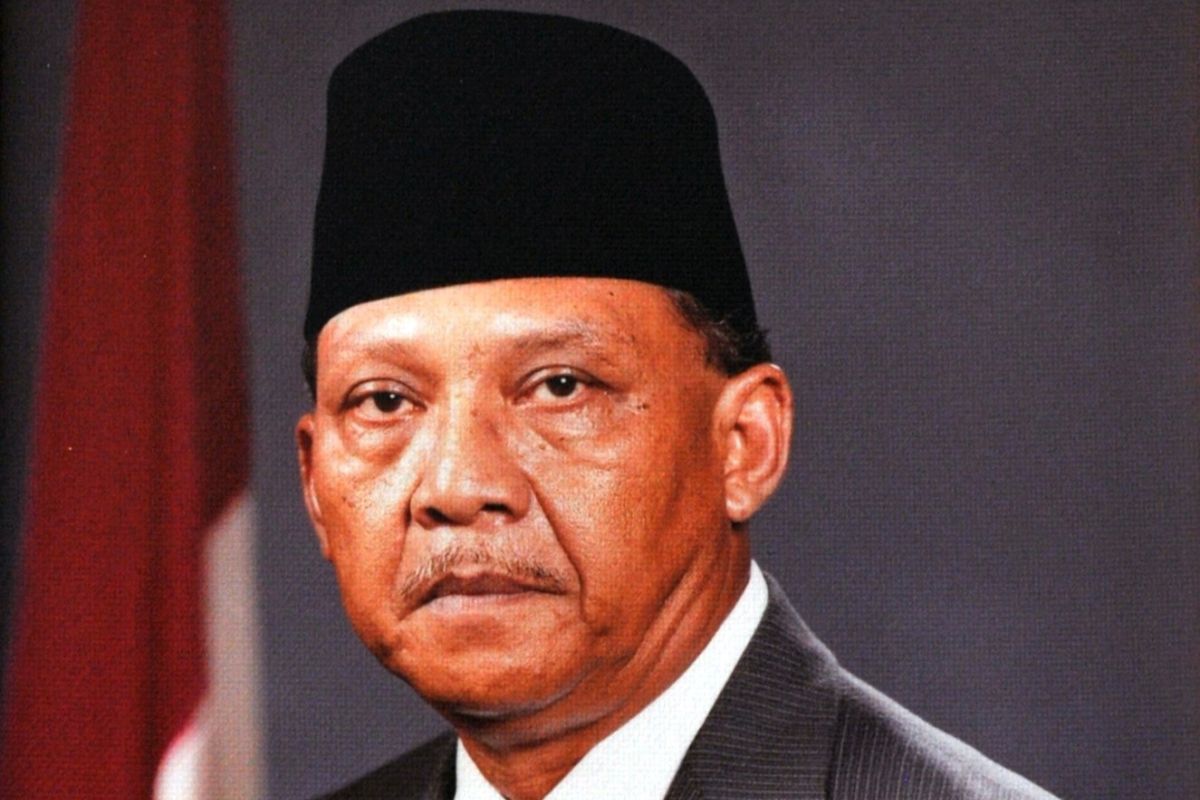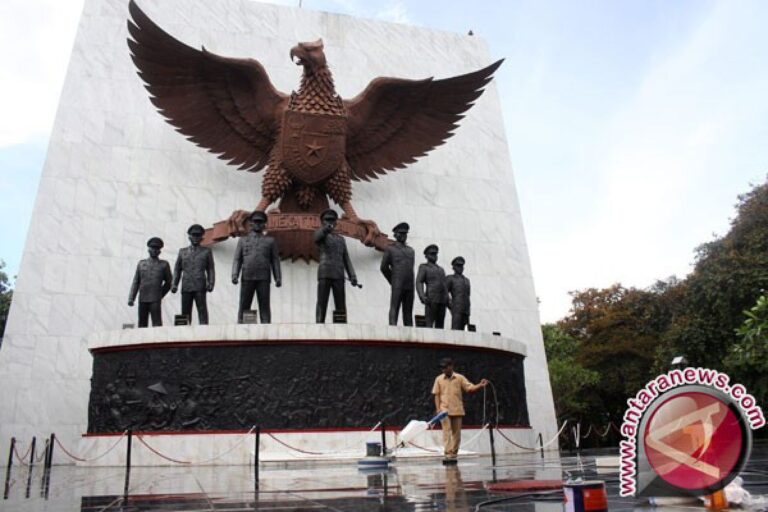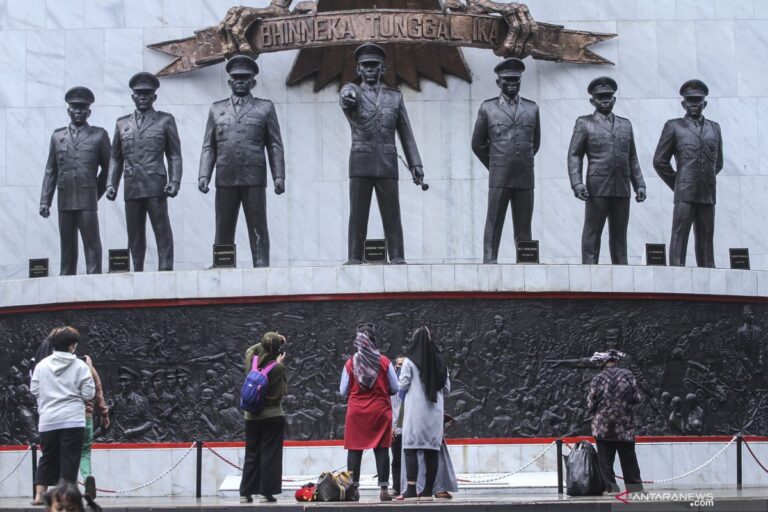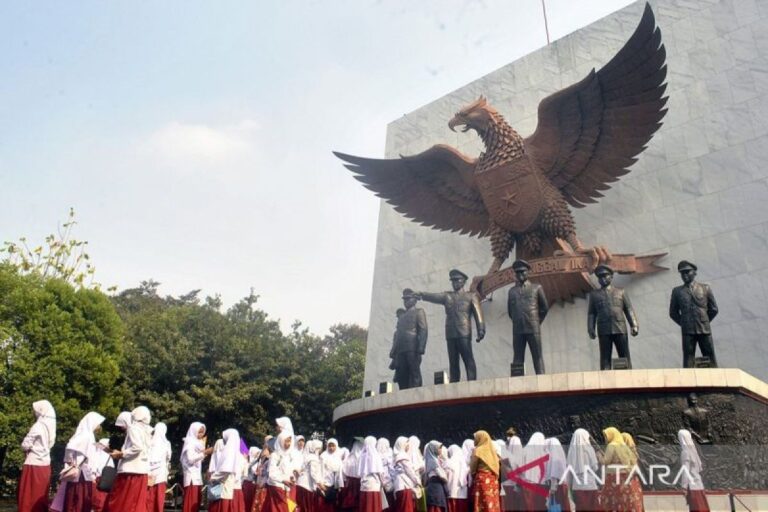
Jakarta (ANTARA) – The name of Umar Wirahadikusumah, 4th Vice President of the Republic of Indonesia, is back in the spotlight after the sad news of the death of his wife, Karlinah Djaja Atmadja, which occurred last Monday (10/6).
Behind his name as Vice President of the Republic of Indonesia, Umar is known as a figure with a high work ethic and great dedication to the Indonesian nation. To get to know him, here is the complete profile of Umar Wirahadikusumah, a soldier and statesman who once accompanied President Soeharto to lead Indonesia.
Profile and educational background
Quoting the official website wapresri.go.id, General (retired) Umar Wirahadikusumah was the fourth Vice President of the Republic of Indonesia serving from 1983-1988. During his term, Umar accompanied President Suharto after he replaced the third Vice President of the Republic of Indonesia, Adam Malik, on 11 March 1983.
Umar Wirahadikusumah was born in Situraja, Sumedang, West Java, on 10 October 1924. He was the fifth son of Raden Rangga Wirahadikusumah, a Wedana of Ciawi, and Raden Ratnaningrum, the daughter of Patih Demang Kartamenda in Bandung.
With a noble family, little Umar grew up in a disciplined environment. However, after his mother’s death when he was still young, Umar was raised by his grandmother, Nyi Raja Juwita, in Cicalengka.
Umar studied at the Hollandsch-Inlandsche School (HIS), but did not have time to finish it because his grandmother died. Subsequently, Umar moved to Ciawi with his father around 1928-1929 and continued his elementary education at the Europesche School (ELS) until graduating in 1942.
Then, he continued his secondary education at Meer Uitgebreid Lager Onderwijs (MULO) during Dutch colonial rule. At that time, Umar also attended Japanese military education in Dai Nippon, Seinenojo and Tangerang for eight months.
Subsequently, Umar joined the National Defense Forces (PETA) in Bogor in October 1944 for six months. This decision was not approved by his family.
After Indonesia’s independence, Umar joined the People’s Security Army (TKR), which became the precursor to the Indonesian National Army (TNI).
Military career and government work
Umar’s military career began while he was at PETA as a platoon commander in Tasikmalaya, after which he was transferred to Pangandaran.
When he joined TKR, he returned to serve as a platoon commander at Pangandaran, then was appointed platoon commander at Cicalengka on 1 September 1945.
In 1947, Umar served as aide to Division III commander Siliwangi in Tasikmalaya, director of operational training in Garut, and commander of the I/II/III brigade in Cirebon.
After the War of Independence, his career in the Indonesian Army (TNI AD) continued to rise. It served long at Kodam III/Siliwangi (formerly Kodam VI/Siliwangi) and played a role in suppressing various rebellions, such as the 1948 Madiun Incident and the PRRI in Sumatra.
As commander of the Siliwangi division, Umar was also an aide to AH Nasution, who was serving as commander of Kodam VI/Siliwangi at that time.
In 1959, Umar was transferred to Kodam V/Djayakarta and served as commander of the military command of the large city of Jakarta (and KMKB). Two years later, he was tasked with becoming commander of Kodam V/Djayakarta.
As commander of Kodam V/Djayakarta, Umar played an important role in the suppression of the September 30 Movement (G30S/PKI) in 1965. At that time, he was responsible for the security of the Jakarta area.
After receiving reports of the abduction of a number of generals and the presence of unknown troops around the Merdeka Palace, Umar deployed a patrol and reported the situation to Kostrad’s commander, Major General Suharto.
Besides that, Umar also supported Suharto’s steps to take command of the army and crush the movement.
In fact, when President Sukarno summoned Umar to Halim Perdanakusumah airbase, he did not comply with the summons due to Suharto’s prohibition order. Because Suharto considered the situation at risk of an assassination attempt against Umar.
In the process of controlling the situation in Jakarta, Umar helped Suharto consolidate the situation. He imposed a curfew from 6pm to 6am and exercised strict control over all newspapers in the capital.
After Suharto managed to stabilize the situation, Umar also supported the formation of the KAP-GESTAPU.
For his role in managing the G30S/PKI, Umar received great trust from Suharto. On 12 March 1965, he was appointed commander of Kostrad, then served as deputy commander of the army (Wapangad) in 1967, and finally became chief of staff of the Indonesian army from 1969 to April 1973.
After retiring from the army, Umar was appointed chairman of the Financial Audit Agency (BPK) for a decade (1973-1983). During his leadership, Umar emphasized that no department was free from corrupt practices.
For his integrity and loyalty, President Soeharto appointed Umar as Vice President of the Republic of Indonesia on March 11, 1983. This appointment surprised many people because Umar’s political achievements were not as great as those of his predecessors, Hamengku Buwono IX and Adam Malik.
During his time as Vice President, Umar was known as a firm and honest official. It often carries out unannounced inspections, including going undercover to directly observe the implementation of government policies in the regions.
His mandate expires on March 11, 1988 and he is replaced by Sudharmono. Many people regret the end of the tenure of Umar, who was known for being clean and very pious.
In his personal life, Umar Wirahadikusumah married Karlinah Djaja Atmadja on 2 February 1957. From this marriage they had two children, namely Rina Ariani and Nila Shanti, as well as six grandchildren.
Awards received
During his service to the nation and state, Umar Wirahadikusumah has received numerous prestigious awards, both from within and outside the country.
By the Indonesian government he was awarded the Mahaputera Adipradana Star, the Republic of Indonesia Adipradana Star and the Dharma Star, which are the highest signs of honor for soldiers and state officials.
Meanwhile, on the international scene, Umar has also received numerous prestigious awards, such as “Commander of the Legion of Merit” from the United States, “Knight Grand Cross of the Order of Orange Nassau” from the Netherlands, “Grand Cross of the National Order of Merit” from France and “Order of National Security Merit – 1st Class” (Tong-il Medal) from South Korea.
This award is recognition of Umar’s dedication, leadership and great contribution to Indonesia and diplomatic relations between the countries.
Death and last respects
Umar Wirahadikusumah died on 21 March 2003 at 07:53 WIB at Gatot Subroto TNI-AD Central Hospital, Central Jakarta, aged 79.
He died after undergoing intensive care for two weeks for a heart and lung disease he had suffered from for 13 years. Umar had undergone surgery bypass heart in Germany in 1989 and underwent treatment again in September 2002.
His body was militarily buried at Kalibata Heroes’ Cemetery (TMP), South Jakarta, on the same day at around 16.00 WIB.
Meanwhile, Umar’s wife, Karlinah Djaja Atmadja, passed away at the age of 95 on Monday, October 6, 2025 at 04:33 WIB at Gatot Subroto Army Central Hospital (RSPAD), Jakarta. Karlinah was treated in the CICU room and buried at TMP Kalibata, next to her husband.
Read also: Politics yesterday, Karlinah was dead until Prabowo asked for MBG sterile equipment
Read also: The wife of the 4th vice president, Karlinah Djaja Atmadja, dies, here is her profile
Read also: Vice President leads military funeral ceremony for Karlinah Wirahadikusumah
Reporter: Putri Atika Chairulia
Publisher: Alviansyah Pasaribu
Copyright © ANTARA 2025
Automatic retrieval of content, crawling or indexing by artificial intelligence on this website is strictly prohibited without written permission from ANTARA news agency.



